Serving Washington, Oregon, Alaska, Montana, Nevada & Idaho
General Service Technician (GST) Outline
Learn more about General Service Technician (GST) Apprenticeship.
General Service Technician (GST) Apprenticeship
What Is ITAC’s GST?
The Independent Technicians Automotive Committee (iTAC) have developed a registered General Service Technician (GST) Apprenticeship Program for Washington State. This 2,000-hour apprenticeship is designed to develop career-ready skills in the automotive repair industry.
This apprenticeship program combines structured, paid on-the-job training at an iTAC employer and ASE Education Foundation approved online and/or face-to-face instruction.
What Is a General Service Technician?
A General Service Technician (GST) performs a wide-variety of basic automotive maintenance, repair, and diagnostic duties used in the trade. GST’s identify and interpret suspension and steering concerns, and determine appropriate corrections. GST’s inspect and diagnose brake systems and replace components. GST’s will also master all fluid services, leaks, and perform preventative maintenance measures.
Registered Apprenticeship Program Outline
Employer Responsibilities for Participation:
- Become a Training Agent by signing the ITAC agreement form furnished by the Washington State Labor & Industries Apprenticeship Section and Northwest Auto Care Alliance.
- Grant equal treatment and training opportunities for all apprentices and apply those conditions uniformly.
- Have equipment available and rotate apprentices in the various processes and equipment of the skilled occupation.
- Identify and hire an apprentice to train in the apprenticeship program.
- Identify a Master Tradesperson to mentor the apprentice(s), provide proper on-the-job training, and maintain the appropriate 1:1 ratio.
- Periodically review and evaluate apprentices before advancement to the next wage progression.
- Pay your apprentice(s) the percentage of Journey wage rate for hours worked (see table on next page).
|
Step Number |
Step Hours |
Journey Level Wage % |
|
1 |
1000 |
80.00 |
|
2 |
2000 |
85.00 |
Apprentice Requirements:
- Must have a high school diploma or GED, or enrolled in an iTAC approved high school or college automotive program.
- Be selected by an ITAC participating employer.
- Must pass a drug screening.
- Eligible to work in Washington State.
- Must have a valid driver’s license.
- Able to perform the physical requirements of the occupation.
- Sign an Apprenticeship Agreement with ITAC and abide by the ITAC Standards of Apprenticeship.
- Attend and pass Related Supplemental Instruction (RSI).
- Demonstrate progress on the job.
- Submit monthly work progress reports.
Wage Progression for Occupation:
- Employers will provide a journey-level wage scale based on the journey level wage rate established for their business. As a registered statewide apprenticeship program, ITAC is required by the Department of Labor & Industries (L&I), to establish the base hourly rate of a skilled/journey level employee participating in the apprenticeship program.
- Pay will vary by employer and number of hours worked.
General Service Technician (GST) On-the-Job (OJT) Tasks & Hours:
- Vehicle Inspection & Shop Safety: 800 hours
- Engine Repair: 200 hours
- Automatic Transmission & Trans Axle: 60 hours
- Manual Drivetrain & Axle: 40 hours
- Suspension & Steering: 200 hours
- Brakes: 200 hours
- Electrical/Electronics: 300
- Heating, Ventilation, and Air Conditioning: 100
- Engine Performance: 100
TOTAL HOURS: 2,000
The above schedule of tasks and hours is designed as a guide. The apprentice shall be instructed, rotated, and trained in all operations and methods customarily used in the industry. Each company will adhere to the schedule as closely as facilities will permit in order to provide the apprentice with well-rounded practical experience on all relevant equipment and processes in the shop.
General Service Technician RSI Outline
ITAC Apprenticeship provides a mentored educational career path, connecting industry and youth. Earning while learning fosters personal and professional growth as well as providing opportunity for advancement to Master status within a structured educational program. This program teaches fundamentals in shop safety and environmental considerations that are standard in the industry. Also included, detailed theory and operation of advanced vehicle inspections, service and diagnosis. Apprentices will learn critical thinking skills to help then problem solve on a higher level. The curriculum is found in the Related Supplements Instruction (RSI) outlined below.
Vehicle Inspection & Shop Safety | 50 Hours
This course covers proper shop safety procedures including personal protective equipment (PPE), proper lifting and hoisting procedures, fire safety and fire extinguisher usage, hazardous material handling and current environmental practices. Students will learn proper tool and equipment usage, how to perform a comprehensive vehicle inspection, Identify hybrid vehicle service precautions. Inspect for proper fluid levels and condition. Inspect for fluid leaks using Pressure testers and UV dye processes. Perform all vehicle fluid services including oil and filter service. Replace and adjust accessory drive belts, tensioners, and check pulleys. Verify proper pulley alignment. Identify fastener thread types, repair internal and external threads using various inserts and tools. How to communicate in a verbal and written format. Students will also learn workplace culture, customer service, and mentorship.
Suspension & Steering | 50 Hours
This course covers theory, operation and servicing of tires, wheels, wheel bearings, suspension, manual and power steering systems used on modern vehicles. Students will learn proper tire and wheel mounting, balancing, rotation and tire pressure monitoring system (TPMS) resetting procedures. Identifying and servicing shocks, struts as well as identifying other worn or damaged components. Performing pre-alignment inspection, measure vehicle ride height. Prepare vehicle for wheel alignment, perform four-wheel alignment by checking and setting vehicle to proper manufacturer specifications.
Brakes | 50 Hours
This course covers theory and operation of brake systems. Identification of brake system components and configuration used on modern vehicles. Students will learn to diagnose and service brake pads, shoes, hydraulic components, rotors, drums, and various power assist and parking brake systems, anti-lock brake, wheel bearings, traction and stability control systems.
Electrical Electronic & Computer Systems | 50 Hours
This course covers theory and operation of modern vehicle electrical, electronic, computerized, and emission control systems. Hybrid electric vehicles, high voltage and regenerative systems. Students will learn electrical theory including Ohm’s law, Series and Parallel circuits, proper diagnosing and testing procedures using circuit testers, digital multimeters, scan tools and oscilloscopes. Students will learn to diagnose service and repair batteries, charging, starting, lighting, body control and convenience systems. Students will also learn to check, record and/or clear diagnostic data and trouble codes from the computer modules.
It is the mission of the Independent Technicians Automotive Committee (ITAC) that the training of apprentices shall be without discrimination based on race, sex, color, religion, national origin, age, disability, sexual orientation, veteran status or as otherwise specified by law. ITAC also encourages women, minorities and veterans to apply with their employer.
General Service Technician Application
Are you ready to apply for the apprenticeship program? Please fill out apprenticeship application form below. If you have any questions or concerns please contact us at itac@nwautocare.org or call (253) 660-ITAC




